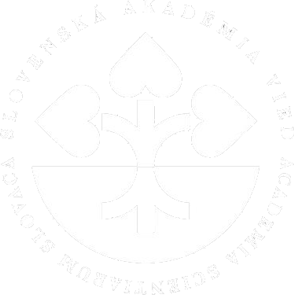This website uses cookies so that we can provide you with the best user experience possible. Cookie information is stored in your browser and performs functions such as recognising you when you return to our website and helping our team to understand which sections of the website you find most interesting and useful.
We monitor viruses in mosquitoes across Slovakia

A card dipped in honey is used to attract gravid female mosquitoes.
The Biomedical Centre of the Slovak Academy of Sciences in cooperation with the Public Health Office of the Slovak Republic started the first full-scale monitoring of West Nile virus and Usutu virus in Slovakia.
“We are testing a new method that should make monitoring easier and more affordable,” describes Viktória Čabanová, who is leading the project.
The research is carried out within the Wampire project, dedicated to the safety of blood transfusions in relation to mosquito-borne diseases, which is supported by the Research and Development Agency APVV.
The mosquito trap was constructed by the Director of the Institute of Virology of the BMC SAS Juraj Kopáček and Kornel Dobročka, Head of the Technical Department of BMC SAS.
In cooperation with the Public Health Office of the Slovak Republic, the traps will trap mosquitoes for two seasons in 36 Slovak regions where the Regional Public Health Offices are located. Currently, the first samples are arriving by post from all over Slovakia.
Testing for doping
The trap is baited with hay, which attracts gravid female mosquitoes, and a card dipped in honey, which catches the mosquitoes’ saliva. If they are infected, also with the virus they carry.

Viktoria Cabanova and letters with mosquito saliva.
“So we don’t catch adult mosquitoes and we can test a much larger number of individuals. Only one sample is tested, so the cost is much lower,” explains Dr. Chabanova.
The card is stable even at room temperature and ensures that the virus is deactivated. It can therefore be freely handled and mailed.
“This method is used in Australia and elsewhere overseas for localised research in an area. We want to test whether it could be used in our conditions and on a large scale,” adds Dr. Čabanová.
These cards are also used in testing athletes for doping.
Early diagnosis and health protection
In Europe, the most important mosquito-borne infections are caused by West Nile virus and Usutu virus.
Most infections are asymptomatic, but in some cases the disease can develop into a more severe form that can resemble encephalitis or meningitis.
The risk is particularly high in the elderly, children or immunocompromised people. Infections also occur when infected blood is transfused or organs are transplanted.
The aim of this project is to develop three long-term sustainable methodologies to obtain epidemiological data that can contribute to improving public health.
Regional public health authorities receive the results at bi-weekly intervals and thus have real-time information on the epidemiological situation at a given location. This can help early diagnosis and protection of the recipients of blood medicines in the area.
Text: E. Rybárová, BMC SAS
Photo: E. Rybárová, BMC SAS







